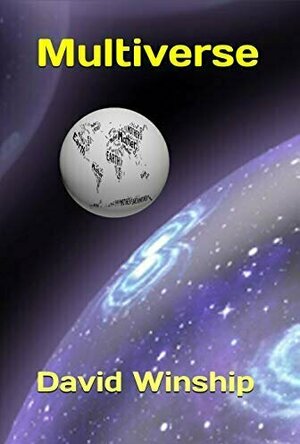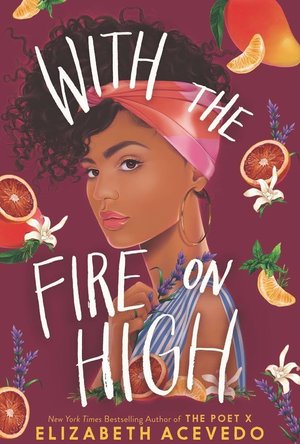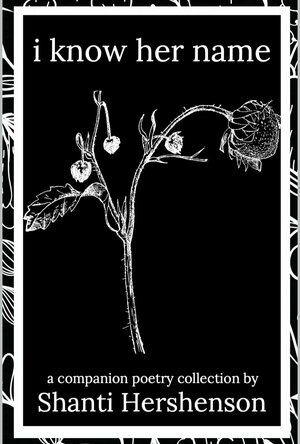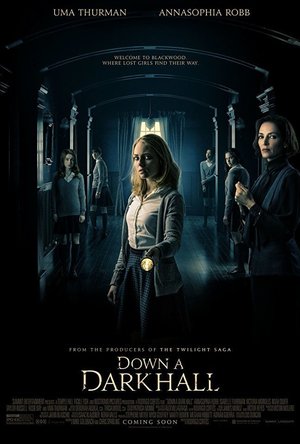Ivana A. | Diary of Difference (1171 KP) rated Multiverse in Books
Aug 3, 2020
<a href="https://diaryofdifference.com/">Blog</a>; | <a href="https://www.facebook.com/diaryofdifference/">Facebook</a>; | <a href="https://twitter.com/DiaryDifference">Twitter</a>; | <a href="https://www.instagram.com/diaryofdifference/">Instagram</a>; | <a href="https://www.pinterest.co.uk/diaryofdifference/pins/">Pinterest</a>;
<img src="https://diaryofdifference.com/wp-content/uploads/2020/04/Book-Review-Banner-38.png"/>;
Multiverse is a collection of poems as well as short paragraphs that take on interesting topics and thought-provoking scenarios of our life.
After reading Multiverse, I cannot say for certain whether he is being arrogant or brave. I am still undecided as to whether I love or hate his style of writing. There is something very intriguing about his writing; sometimes he makes me smirk, and sometimes his words trigger me.
<b><i>"In a democracy, shouldn't there be room for those who don't want a fair society?"</i></b>
Even though I appreciate the style this book was written in, and the way the topics are being expressed, I am not in awe of how bombshells are dropped and then he proceeds to move on to a different subject.
Following up on this, I would also like to note the poem "Forsaking the Poppy", where the author opens us the suggestion of declining to wear a poppy. The thought process behind it is that this could be seen as synonymous with racism and chauvinism.
<b><i>One thing is certain though. </i></b>
This book will definitely leave an impact on you, whether good or bad. And it will prompt a discussion, or at least spark a bit of curiosity on various topics that are relevant in today's world.
I recommend it to all curious minds out there. It may not be your cup of tea, but you never know. As for me, I like books that either make me feel good or learn something, so i will end this review with something I learnt from this book:
<b><i>"According to ancient Japanese culture, the Sakura tree represents the beauty and fragility of life, reminding us that things in life are incredibly precious but also tragically ephemeral." </i></b>
<a href="https://amzn.to/2Wi7amb">Wishlist</a>; | <a
<a href="https://diaryofdifference.com/">Blog</a>; | <a href="https://www.facebook.com/diaryofdifference/">Facebook</a>; | <a href="https://twitter.com/DiaryDifference">Twitter</a>; | <a href="https://www.instagram.com/diaryofdifference/">Instagram</a>; | <a href="https://www.pinterest.co.uk/diaryofdifference/pins/">Pinterest</a>;
Goddess in the Stacks (553 KP) rated With the Fire on High in Books
Jul 25, 2019
With The Fire On High centers on Emoni Santiago, a teenage mother struggling to graduate from high school on time. When a culinary arts elective is offered during her senior year of school, she takes it despite feeling like she should be spending her energy on her daughter's future instead of realizing her own dreams. The elective opens up an entire world for her, however, taking her from whipping up magic alone in her own kitchen to being recognized by talented chefs as having something special. The added hours spent on cooking begin to affect her other responsibilities, however, and Emoni struggles to balance everything in her life, a fight that is very nearly upended by the new, very cute boy who just transferred to her school.
Emoni deals admirably with the vast responsibilities of being a parent, the complications of her own somewhat unusual home life (she's been raised by her grandmother after her mother's death and her father's absence), and the pressures of high school. Especially a school where she spent freshman year pregnant. Rather luckily, her daughter's father goes to a different school, so at least she doesn't have to deal with him every day.
Similar to The Poet X, the book deals with the intersection of black American culture and Puerto Rican culture, a combination I've been seeing more and more in Young Adult. (Well, The Poet X was Dominican, but they have very similar worries, mostly revolving around feeling "not black enough.")
I loved Emoni, I loved Malachi (the cute transfer student), I loved Abuela and Baby Girl/Emma. I even didn't mind Tyrone too much. For being a player, he was trying to do right by his daughter. Acevedo has such a talent for characters. Angelica (Emoni's best friend) and her girlfriend were a delight, too.
If you see a book by Elizabeth Acevedo, pick it up. You won't be disappointed. I can't wait to pick up her next book, which appears to be another novel in verse called Clap When You Land, due out next year!
You can find all my reviews and more at http://goddessinthestacks.com

Axel Scheffler's Flip Flap Ocean
Book and Education
App
What do you get if you cross a whale with a jellyfish? Why, a whellyfish of course! And how about a...

Axel Scheffler's Flip Flap Jungle
Book and Education
App
What do you get when you cross a monkey with a porcupine? Why, a monkupine, of course! What about a...

Axel Scheffler’s Flip Flap Pets
Book and Education
App
What do you get when you cross a rabbit with a dog? Why, a Rog, of course! What about a snake with a...
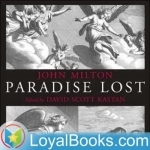
Paradise Lost by John Milton
Podcast
Magnificent in its scale and scope, this monumental poem by the blind poet John Milton was the first...
Rachel King (13 KP) rated Finding the Light of Jesus in Books
Feb 11, 2019
The final chapter is actually a collection of prayers and reflections that the reader is supposed to follow over the course of seven days. This is followed by a section of "Conversations With Jesus" that focus on different topics such as anger, jealousy, being overwhelmed, and fear. This is followed by five pages in which she quotes a scripture from the New American Bible, and leaves a blank space for the reader to journal the answers to her questions about the scripture verse. This is followed by more of her prayers and a further 30 days of prayer and reflection.
Overall, the author presents a Jesus that is only concerned about a person's feelings, whom the author seems to believe that everyone has inside of him or her from birth. She further indicates that everyone goes to heaven, and Jesus' strongest quality is being a "light." No mention is made of the basic precepts of Bible-based Christianity, such as sin, salvation, and the resurrection of Jesus Christ. Instead she writes things that seem to contradict parts of scripture, such as stating that Jesus does not judge us and that we are the "light," as well as what I previously mentioned about everyone going to heaven. In the context of that paragraph, I almost expected the author to write that we are all Jesus. I also noticed while reading that nowhere does she ever refer to Him as Jesus Christ either. The entire book has a vague New Age feel, as many of the things Tuttle writes mimic the doctrine of a New Age Jesus.
The author, Cindy Tuttle, has a background of working in the mental health industry for more than twenty-five years. Based on what I have read in this book, I have no doubt that she is good at her job and finds great success with her patients, but I do not find this book of the same calibur.
While I Know Her Name isn't as dark or as heavy as its first book, You Won't Know Her Name, there were still some heavy themes throughout. Hershenson admits in this book that the nameless girl in You Won't Know Her Name was actually her (which I already suspected when I read the first book) and that all the poems in You Won't Know Her Name and I Know Her Name were written about what was happening and what had happened in regards to the bullying and sexual assault done at the hands of a "friend" while she was in junior high and her school's lack of caring. While I Know Her Name isn't a very long book, it still packs a big punch. The poetry is still amazingly written, and to know that they were written by such a young girl makes it even more so.
I Know Her Name is an emotional read, and my heart really went out to Shanti Hershenson whilst reading this. Her hurt, anger, sadness, frustrations, and all over emotions are easily conveyed with each poem. It broke my heart that she (and many other children) have to face bullying and abuse while the school does nothing about it. I felt like I was right beside Hershenson as she further tells her story through poetry although I felt helpless since I could only read the words and not physically do anything.
Trigger warnings for I Know Her Name include mentions of sexual assault (but not in detail), some profanity (but not much), bullying, depression, mentions of suicide and telling someone to kill themself, and violence.
All in all, I Know Her Name is such an emotional read written by a very talented teenager. It will definitely hit you with many feels and leave you angry at how the school failed this girl. Although this book can be read as a standalone, I would still read You Won't Know Her Name first just for more background and because it's so good. I would most definitely recommend I Know Her Name by Shanti Hershenson to those aged 14+ who are being bullied, have been bullied, or are the bullies themselves. This is a poetry book that won't disappoint.
Acanthea Grimscythe (300 KP) rated The Coldest Girl in Coldtown in Books
May 16, 2018
I don’t really tend to read a lot of vampire books anymore, especially when they’ve been labeled young adult. Holly Black’s The Coldest Girl in Coldtown is definitely an exception to that habit. I needed a break from flipping pages and wanted to get in a little bit of time gaming. When I saw The Coldest Girl in Coldtown available for an immediate audio book borrow from OverDrive, I decided to give it a shot. I’d heard of Holly Black, even if I hadn’t read any of her work.
Black’s novel takes vampirism and spreads it in the same manner that most post-apocalyptic novels spread the infectious diseases that create zombies. Vampires are romanticized, as they often are, especially in young adult books, and in this case, they no longer live in the shadows; rather, they have taken up residence in government organized areas known as Coldtowns. Those that have been infected with the vampire virus are also holed up within the walls of this cities, and there’s no shortage of food, because people are dying to get in.
Waking up after passing out at a party, the main character, a young woman named Tana, finds herself amidst a massacre: people she knows have been slaughtered by vampires. The only survivors are her, an ex-boyfriend, and a strange boy. Her ex is infected, and the boy is a vampire. Deciding to turn him in for a bounty, and worried that her ex will become a vampire himself, the trio travel to Coldtown. It isn’t long before Tana finds herself caught up in what could loosely be described as vampire politics. Amongst betrayal, she must persevere in order to guarantee her own survival.
The majority of the story is told from Tana’s perspective, with a few chapters written in Gavriel, the vampire’s, and another one, maybe two, from her younger sister’s, Pearl’s, point-of-view. These changes exist solely to expound on certain events that have led the characters to where they are, such as Gavriel’s past — which is, undoubtedly, one of my favorite parts of the book. Each chapter also begins with an excerpt, usually from a poem that deals with death, the undead, or vampires.
Voices make a huge impact on listening to audio books, especially for me. If I can’t stand the voice, I will not finish the book more than likely. In the case of The Coldest Girl in Coldtown, the narrator, Christine Lakin, is absolutely amazing. Her voice is pleasant to listen to, and there is a clear difference between the way each of the characters speak.
The Coldest Girl in Coldtown isn’t among my favorite reads, perhaps because I prefer the more traditional approaches to vampires, but it is, undoubtedly, an fun journey. If you like your vampires a bit on the softer side of the spectrum, this one is definitely worth picking up.
BookwormLea (3034 KP) rated Down a Dark Hall (2018) in Movies
Jul 26, 2020
The general plot is that after her father dies when she's young, Katherine slowly becomes the stereotypical angry teen who lets the world know she hates it by letting it burn. She gets made to go to therapy after claiming she sees her father (which she does, because we watched his spirit say goodbye). She is invited to Blackwood. A mysteriously remote mansion home to 6 even more mysterious teachers, including Madame Duret, the headmistress. Kat is joined by 4 other girls of a seemingly lost cause. Duret calls them 'gifted' and 'misunderstood'. They are taught the usual lessons, Maths and English, music and art. And with the exception of Veronica (the literal definition of teenage nightmare) they all seem to excel at one thing in particular. Our lead girl Kat, music, specifically piano. She is taught by Durets son, Jules. Everything seems to be going well, one girl paints like a prodigy, another writes poems that could rock Shakespeares world, Kat does her piano thing rivalling Mozart and the last (who could basically still be in the role of Esther in Orphan) is solving maths problems that could save the world. That is until they start seeing shadows of people who aren't there, voices in their heads and they physically can't stop doing what they are gifted at, to the point where they don't eat or leave their rooms. After finding old files of other girls in similar situations who died, Kat and Veronica try to do something about it. Veronica is taken away and Kat is suddenly a Piano prodigy, almost possessed by the greats themselves. Yeah 'almost'. Because that's exactly what happened. They have been used as vessels for history's greatest men and women, who died too soon. How fantastic is that? If this movie was made better, that is a brilliant plot! But of course everything goes bad, just like their ghosts, the girls start dropping like flies, Poem girl kills herself, Painter literally starves herself, and crazy math girl is on the verge of escaping when she becomes enthralled in the beauty of the flames. Flames caused by Kat when she saves Veronica from being possessed by some weird demon thing who really doesn't get explained. They almost get out. Duret gets possseded and burned by the spirits she conjured. All the teachers die and Jules is crushed when he saves Kat. Of course there has to be surviors so Kat and Veronica get out, where on the brink of death, Kat sees her father again who makes her come back to life after she tries to go with him.
Overall, not a terrible movie, but if it had been made better, would probably be one of my favourite plots ever!
